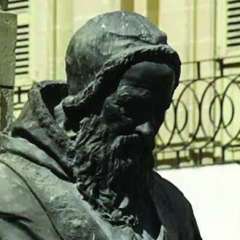St. Maximos the Confessor (580-662) – Papal Supremacy and Infallibility by Divine Right
Оцени ову тему
-
Чланови који сада читају 0 чланова
- Нема регистрованих чланова који гледају ову страницу
-
Сличан садржај
-
"Why is the believing Catholic not subject to neurosis?" A question posed to Karl Jung in 1939
Од Bernard,
- 0 одговора
- 254 прегледâ
-
St Anselm of Canterbury (c1033-1109) – Bishop, Confessor, Doctor of the Church
Од Bernard,
- anselm
- canterbury
- (и још 6 )
- 1 одговор
- 212 прегледâ
-
- 4 одговора
- 394 прегледâ
-
- 6 одговора
- 377 прегледâ
-
- 0 одговора
- 276 прегледâ
-


Препоручена порука